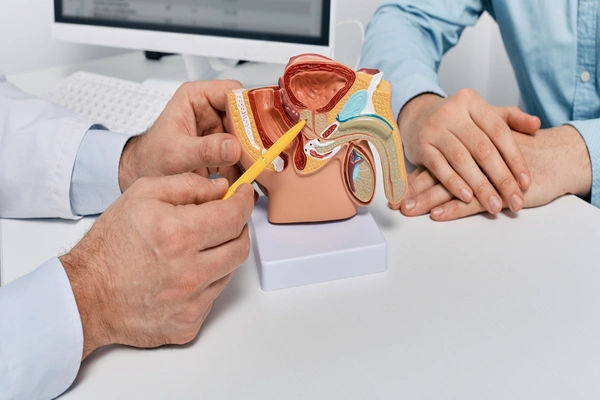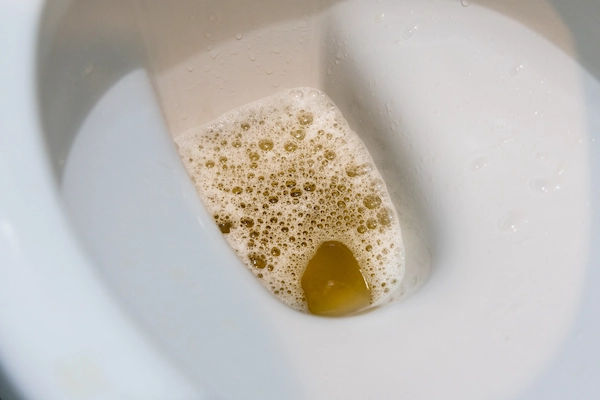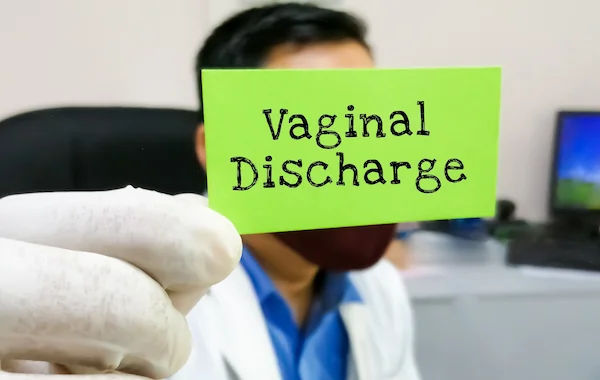- Male
- 20 Years
- 29/01/2025
I've been having this pain on the left side of my butt for over a month now and even after visiting the doctor, who said it'll be fine and gave me some painkillers, it's still there. I decided to get an MRI and CT scan, but those came back normal too. Now it's super frustrating because in the last five days, I've started feeling this sharp pain on my right side as well. Plus, I've been needing to pee a lot more often. Could all these be connected somehow? I'm seriously worried and just want to find out what might be going on.
Answered by 1 Apollo Doctors
Azithral Side Effects: Diarrhea and Bloody Mucus in Stool
Given your symptoms, it's essential to assess the situation and determine the best course of action.
Possible Causes:
- Antibiotic-associated diarrhea: Azithral (azithromycin) can cause diarrhea, especially when taken for an extended period.
- Clostridioides difficile (C. diff) infection: Antibiotics like azithromycin can disrupt the gut microbiome, increasing the risk of C. diff infection, which can cause diarrhea and bloody stools.
- Other gastrointestinal issues: Underlying gastrointestinal conditions, such as inflammatory bowel disease (IBD), can be exacerbated by antibiotics.
Recommendations:
- _Consult your doctor*: Immediately inform your doctor about the diarrhea and bloody mucus in your stool. They may recommend:
- Stopping the antibiotic and switching to an alternative treatment
- Continuing the antibiotic with close monitoring of your symptoms
- Adding medications to manage diarrhea and prevent dehydration
- _Fluid replacement*: Drink plenty of fluids, such as water, clear broths, or electrolyte-rich beverages like coconut water or sports drinks, to replace lost fluids and electrolytes.
- _Stool tests*: Your doctor may order stool tests to check for C. diff infection or other gastrointestinal pathogens.
Important Notes:
- _Don't stop antibiotics without consulting your doctor*: Stopping antibiotics abruptly can lead to treatment failure, antibiotic resistance, or worsening of the underlying infection.
- _Seek medical attention if*: You experience severe diarrhea, bloody stools, abdominal pain, fever above 101.5F (38.6C), or signs of dehydration, such as excessive thirst, dark urine, or decreased urine output.
Dr. Shubham Suggests...
Consult a Urologist
Answered 04/07/2025
0
0

More Urology Health Queries
View allI've been dealing with a UTI for the last ten days and have been taking medicines like Citralka syrup, Niftran, and Drotin M. However, my urine is still pale yellow, and my urinalysis showed 10-15 pus cells, with the culture coming back negative. How much longer will it take until I'm feeling better? I'm really getting tired of this.
use medicine
Answered by 1 Apollo Doctors
I have a grade 3 varicocele but was told surgery isn't needed since my semen is fine. My testosterone is low though, and I've noticed swelling in my chest plus something hard in my left testicle. Getting married soon am I physically fit for married life? How's my erection and libido for sex? Could there be any issues like cancer in my testicles? I'm in Bengaluru and would like to consult one doctor for all these concerns.
Grade 3 varicocele requires surgery ,they include laparoscopic varicocelectomy,open surgical intervention by making a minor incision and ligating the effected veins and lastly percutaneous embolisation procedure.The gold standard treatment is called varicocelectomy procedure is advised to the patient.
Answered by 1 Apollo Doctors
I'm dealing with a 6.7 mm stone lodged in the middle of my right kidney and mid ureter. I've been taking Berberis Vulgaris and Ocimum Canum, 10 drops each in half a cup of water twice daily. I'm really curious, how long might it take for the stone to completely pass? Do you think these remedies will effectively remove the stone?
Possible Causes:* 1. Musculoskeletal strain 2. Tension or stress 3. Poor posture 4. Herniated disk 5. Cardiovascular issues (e.g., angina, heart attack) 6. Respiratory problems (e.g., pneumonia, asthma) *Over-the-Counter (OTC) Pain Relievers:* 1. Acetaminophen (Tylenol) 2. Ibuprofen (Advil, Motrin) 3. Naproxen (Aleve) *Muscle Relaxants:* 1. Cyclobenzaprine (Flexeril) 2. Methocarbamol (Robaxin) *Prescription Medications (Consult Doctor):* 1. Anti-inflammatory medications 2. Muscle relaxants 3. Pain management medications *Self-Care:* 1. Rest and avoid heavy lifting 2. Apply heat or cold packs to affected areas 3. Stretch gently 4. Maintain good posture 5. Manage stress through relaxation techniques
Answered by 1 Apollo Doctors
Disclaimer: Answers on Apollo 247 are not intended to replace your doctor advice. Always seek help of a professional doctor in case of an medical emergency or ailment.





